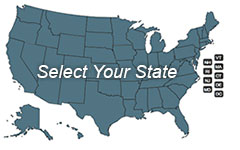What is Counseling Psychology and How Does it Relate to Counseling?
Counseling psychology programs offer preparation for careers in psychotherapy, research, and academia. Graduates may boast different initials after their names. Licensing options are related to degree level. Doctoral level counseling psychology programs prepare students to become licensed psychologists. Master’s programs can be a viable pathway to licensing as a professional counselor. Some states also offer master’s level psychological practitioner licenses, though master’s level professionals can expect a more limited scope of practice than their doctoral counterparts.
- Featured Online CACREP Accredited Master's in Counseling Program Options:
- Liberty University, a non-profit university, offers a CACREP accredited online Master of Arts in Clinical Mental Health Counseling. Click here to learn more about Liberty University and their Master of Arts in Clinical Mental Health Counseling.
- Prepare for counseling licensure in as few as 27 months with Pepperdine’s online MA in Clinical Psychology - no GRE required. The program is top ranked for return on investment (ROI) by OnlineU.
- Southern New Hampshire University (SNHU) offers a CACREP accredited online BA in Psychology - Mental Health. Click here to learn about the counseling programs at SNHU.
- Grand Canyon University offers an M.S. in Clinical Mental Health Counseling with an Emphasis in Childhood and Adolescence Disorders; Christian Counseling; Marriage & Family Therapy and Trauma.
- Sacred Heart University's Master of Arts in Clinical Mental Health Counseling is offered online and was developed based off CACREP standards to prepare graduates for licensure in most states. Click here to learn more about Sacred Heart University and the online Master of Arts in Clinical Mental Health Counseling.
Counseling psychology programs offer preparation for careers in psychotherapy, research, and academia.
Doctoral Level Counseling Psychology Programs
At the doctoral level, counseling psychology is very similar to clinical psychology. Clinical psychology has general focused on individuals with severe mental illness while counseling psychology has focused on the needs of a more normal population. The latter took off in the post-World War II era with recognition of the needs of returning vets. The Society of Counseling Psychology (Division 17 of the American Psychological Association) notes that while the fields grew up separately and there are still some differences in focus, both qualify individuals for the same licenses — and professionals often work side by side (http://www.div17.org/about-cp/counseling-vs-clinical-psychology/).
At the doctoral level, accreditation by the American Psychological Association (APA) has some bearing on future career opportunities (http://www.div17.org/SAS/internship).
Master’s Level Counseling Psychology Programs
Master’s level counseling psychology programs may offer preparation for careers as professional counselors. A counseling psychology program may include many of the same courses as a traditional counseling program. Typical coursework includes human development, psychopathology, clinical relationships, psychotherapy techniques, and research methodologies. The program will also include fieldwork experiences.
A prospective student will need to be familiar with their state’s licensing standards and confident that the particular program will meet them.
A counseling psychology program is more likely to be housed in a department of psychology. This may lead to some difference in instruction as each discipline has a unique history and philosophic bent. In a counseling psychology program, psychology nomenclature ‘like biological bases of behavior’ may slip into course titles. A counseling psychology admission committee may require more psychology coursework on the transcript. Master’s level programs are not APA-accredited, but those that are housed in schools that have APA-accredited doctoral programs may be very strong. They are typically quite competitive.
Counseling psychology programs may not always be accredited by the Council for Accreditation of Counseling and Related Educational Programs (CACREP); a program that represents the blending of two disciplines and utilizes faculty from two disciplines may face more challenges than one that does not. It is imperative that a counseling psychology program be housed in a regionally accredited institution. In most cases, the accreditation of the program is less important, though a prospective student will need to be familiar with licensing standards and confident that the particular program will meet them. Most states do not require that a program be CACREP-accredited; it is more common to mandate that a program include similar coursework and meet comparable standards. Lack of CACREP accreditation, though, will have some bearing on future opportunity.
Most states do not require that a program be CACREP-accredited; it is more common to mandate that a program include similar coursework and meet comparable standards.
Some counseling psychology programs are designed specifically to qualify graduates for professional counseling licensure – in the home state and others. This can be an advantage. If the state requires that a candidate have a course in ethics that is specifically designed for counselors, the candidate may well have it on his or her transcript.
Flexible Options
Counseling psychology can be a flexible option, and not just because of the many innovative programs. Some schools offer two degree options: a master’s option and an APA-accredited doctoral option. While master’s programs are competitive, they are generally not quite as competitive as those at the doctoral level.
Sometimes students begin in the master’s program in counseling psychology and matriculate to a doctoral program later. Such students may not know at the onset what license they will ultimately qualify for. Texas Women’s University notes that their counseling program can lead to three different state credentials, though individuals who complete the doctoral program don’t usually feel the need to pursue the lower licenses (http://www.twu.edu/psychology-philosophy/faqs-admissions-programs.asp).
Find Mental Health Counselor Licensure Requirements in Your State:

Learn about becoming a Mental Health Counselor in your state:
To View Full U.S. Map Click Here.